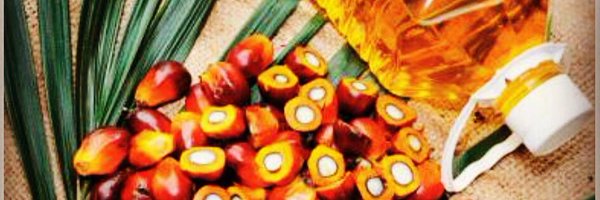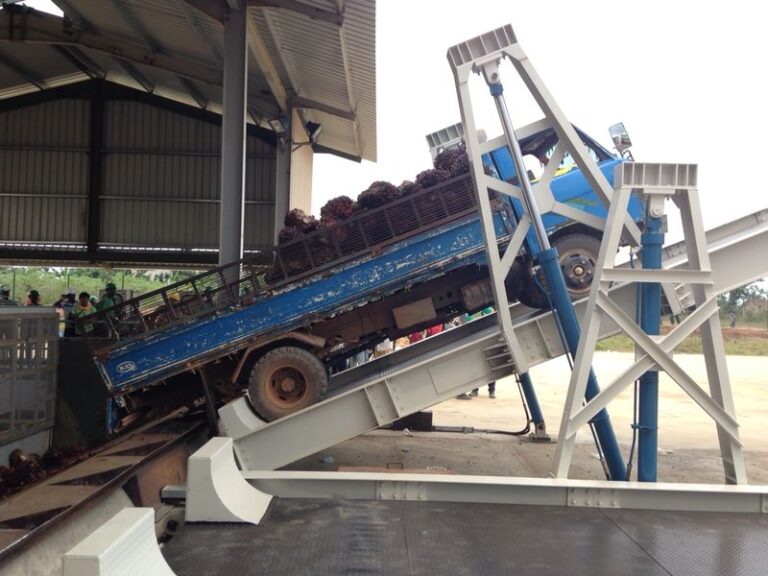Dekel Agri-Vision plc (LON:DKL) Executive Director Lincoln Moore caught up with DirectorsTalk for an exclusive interview to discuss their latest palm oil update, higher like-for-like palm oil production, exceeding palm oil production, the difference between CPO sales prices & international prices, cashew production andthe catalysts for a share price rebound.
Q1: Lincoln, Dekel Agri-Vision announced a very positive start to the year in your update for the palm oil project, following on from a strong production performance last year. What were the key points from the announcement?
A1: The palm oil business has obviously had really strong 11 consecutive months of higher like-for-like production, so it was good to start the year. Obviously, January is not a high season month, but it’s good to start the year in a positive fashion. We had fresh red bunches up 71% and a CPO production up 56%, so pleasing to see the continuity of the performance of the palm oil operation continue in a positive light.
Prices are a bit down and we’ll get into that in a second, but overall a good month.
We’re probably seeing some of the highest contribution margins, which is really the cost of the through to transport and agents type cost lower, so the margins are good and we obviously look forward to moving into the high season imminently.
Q2: Now, in terms of the 11 consecutive months of higher like-for-like palm oil production, is this a seasonal issue or possibly a structural change?
A2: Yes, it’s an interesting one. It’s certainly, to some extent, seasonal because the comparatives particularly in 2023 were against a seasonally low 2022, so that’s certainly part of the issue. We are also seeing some structural changes in our market competitors, which probably need more evidence to see the flow through.
What we’re seeing is one of our major competitors, they demerged, so the business which relates to palm oil, which competes with us fruit, no longer can rely on its downstream businesses to allow it to potentially overpay for products.
So, we’re seeing that we may be getting a little bit more market share. Obviously, we’ll watch this closely over the coming months, but we did see it in the low season last year, particularly months like November where we had unusually very, very high production.
Some hope that we perhaps pick up more market share, which would be wonderful as the year progresses, if that comes to fruition.
Q3: In terms of the first half performance with palm oil production, do you think this may mean you exceed the first half last year?
A3: It’s too early probably to call, but I’d be very confident that we’ll be well ahead in February given as a relatively, if people remember, quite a late high season last year, so February was quite, quite weak. So, I would be confident, certainly we can look forward to Q1, I think we’re ahead.
Of course, it just relies somewhat on the timing and strength of the high season and a lot can happen through March, April, May, which are typically the strongest months, last year actually June was also strong.
We’ve certainly started well, I think we’ll be well ahead in February so we’re setting ourselves up well to have a very strong production first half.
Q4: Your CPO sales prices, while still quite high, are a bit lower than the international price. Can you just explain for us the difference?
A4: Yes, I guess as everyone knows, each country around the world has taken on measures to curb inflation, typically in the Western world, given our high levels of debt, interest rates are the mechanism most used. If you’re looking at, say, West Africa and particularly the Ivory Coast where relatively personal debt levels are quite low, it is not typically used. So, interest rates in Cote d’Ivoire actually remained relatively steady whilst in the UK and the US they’ve gone up multiple times.
What they do use, of course, is food and energy are controlling so ensuring prices are manageable in those areas so buying petrol in Cote d’Ivoire, there’s been only a very small uplift, petrol prices, and food, and of course palm oil is an essential product. The prices, it’s being managed at a level slightly below the international price so that’s what we’re seeing at the moment.
Accordingly for us, that has flown through, and the costs as well are also materially lower, in fact, in terms of transportation, agency costs, much lower than you typically would see. So, our contribution margins percentage is at one of the highest levels that we have seen, which is good.
Probably history says when markets have some interference that eventually market issues take over and you return to normality so we’ll see how that progresses.
We’re seeing some uptick in the CPO price in February and of course international prices have ticked up a little bit so we’ll wait and see. The most important thing I think is the prices are still very good and the margins and contribution margin percentage is excellent as well.
Q5: Just turning to cashews, the increase in production volume seems to be taking longer than expected, can you explain for us the challenges and solutions?
A5: I think frustrating is an understatement for us, dealing with it on a daily basis and I’m sure that for retail shareholders looking at, we were certainly looking to see the ramp up in production in the second half of last year.
It’s been a long process. The first objective just going back a bit was to absolutely make sure that we got all the equipment to site, our supplier had financial distress issues, but it would have been a disaster to end up with a half completed processing part. So that was certainly goal number one and that was achieved and commissioning was achieved.
What we’re seeing and when we ramped up production in Q3 and Q4 was that we were able to produce at the cashflow level positive levels in terms of the quantities, but the percentage that were coming through unpeeled was just far too high.
Really it relates to three areas of the equipment, and there’s twelve stages of the cashew production, three parts of it – the shelling machines, the drying after shelling and peeling are the areas of concern.
So, we brought it in an independent expert who’s well known in cashew circles to verify the issues. We obviously received an extensive feasibility report in Q4 on recommendations, and those recommendations essentially included moving those areas of equipment to off the shelf Vietnamese equipment.
Now, the good thing about off the shelf is it’s proven it works, the technology in Vietnam has actually proved dramatically since we started building this mill three or four years ago. So, we’ve already used and tested particularly amongst the shelling machines, multiple shelling machines and they’re working very well.
We’ve made the orders now and what we’re looking to do to see the ramp-up start in Q2, we have brought back our forecasts significantly. I think we’ve moved down to levels which hopefully we can beat on both the palm oil business actually and the cashew business. It’s certainly an absolute focus for us in Q2 into Q3 of this business to become cashflow positive because it’s an incredible site, it looks terrific, there’s fantastic operations through certain parts of machinery but it all must link together.
So, this is huge focus and we’re looking forward to providing positive news on this cashew operation as we move towards mid-year.
Q6: Now the share price is at a historical low, what do you see at the catalysts to rebound?
A6: I think obviously the prices dropped and clearly the palm oil operation I think people are seeing consistently for 11 months it’s performed very well but clearly the cashew commissioning lag has disappointed and we understand the frustration.
So, they’re really the two operational things is continued strong performance of the palm business which is providing excellent operating cash flow, and the cashew clearly, the moment we can say that the cashew is moving to breakeven or above I think will be a real catalyst for a stock price increase.
Clearly, from our point of view, we’re looking to sensibly de-leverage the business from the operating cash flow particularly from the palm business so they’re the three focuses hopefully I think for the long term shareholders they’re a pretty obvious focus at this stage.
I’m confident on the palm oil operation delivering, it’s doing very well, and we think with the changes and modifications to the cashew plant this is also heading into a finalised direction of ramp up so that’s really important.
So, again the next few months will be telling but down to 1.25/1.3p is a historical low, we were at 1.8 actually this time last year and rebounded up to 3/3.5 so the proof will be in the pudding of course, but we feel like with the achievement of these goals we’ll be in much better shape in the coming months.







































